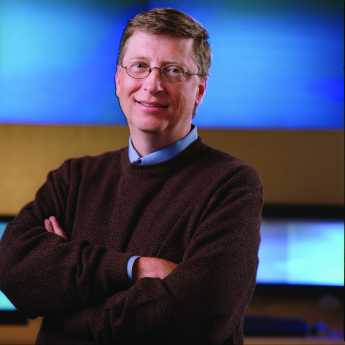Related Topics
Favorites - II
More favorites. Under construction.
Thinking About Thought
There's a yawning gap between concepts of the mind, and concepts of brain function.
Methods of Thought: Scientific, Logical, Future

|
| Galileo |
Early in the Sixteenth century -- some say it was Galileo who started it -- the Scientific Method appeared. A hypothesis was generated, then subjected to experiment. Flaws were detected, the hypothesis re-modified, then tested again. The central characteristic of truth was established: reproducibility. The same test should always yield the same result in the Scientific Method.
A few decades later someone -- probably Sir Francis Bacon -- applied a modified Scientific Method to the common law. What seemed like a good remedy for a dispute was tested in the courts by entertaining appeals of similar cases, to test how the remedy seems to turn out. The reliance could not be on systematic experiments, so it had to rely on nature's experiments. Of the two disciplines, the scientific thesis-hypothesis-new thesis came to rest with firmer conclusions sooner than the common law did because scientists could devise systematic tests. A Judge, on the other hand, must wait for roughly the same circumstances to come up again before reproducibility can be determined, and that sometimes takes decades. Since a Judge can scarcely be expected to arrange his cases experimentally, non-comparable circumstances are always potentially present.
In both Experimental science and the Law, however, increased velocity --progress -- is an independent variable. It was celebrated enough during the Enlightenment to embolden public acceptance -- not merely of the validity of the Scientific Method, but -- of science itself and the Law itself. During those three hundred years after Galileo dropped bullets of differing sizes down the Tower of Pisa, rapid progress created a new respect for scientists and lawyers. Naturally, that led to lessened prestige for priests and kings, hence disruptions of existing power arrangements. History was the score-keeper of these turmoils, but History itself also became a variant of the scientific method. Unfortunately more than even the Law, History had to wait long periods for natural experiments to present themselves. Unfortunately, also, the effect of history on politics created an incentive for misrepresentation, now one of its main weaknesses.
Meanwhile untested Philosophy languished. The human uterus was not bicornuate, as anyone could see by examining one. Understanding only crept forward in a petty pace among logical philosophers; a century was brief in their vocabulary. For their part, Religions made a poor showing compared with the Common Law, particularly when advocating patterns of behavior. Religions were too rigid, too mysterious in their conclusions, provided too little guidance and too much grief. Too often the object seemed to be a skill in making the worse appear the better reason or acquiring detestable techniques of Oxford debating societies, where framing arguments in sly ways advances inappropriate victories. Logic acquired a bad name when its practitioners could easily be seen to prefer victory for the debater over advances for truth. And yet it does seem much too soon to discard logic and debate; indeed, they may be on the threshold of their finest hour.
A professor of mathematics of one of America's greatest scientific graduate schools, recently expressed his confusion about the nature of logic. Experiencing platoons of math graduate students marching past his blackboard, he commented on the extraordinary diligence of mostly foreign-born students, perfectly content to spend twenty daily hours studying to achieve distinction. "And yet," he said, "Every year there are two or three who never come to class, except to take the test. And they always get the highest possible grades." His inability to discuss the inner workings of such minds was related to the fact that he seldom met them in person. That such logical prodigies are not rare is also seen at chess tournaments, where players of no particular professional distinctiveness are to be observed moving among the chessboards of twenty opponents, occasionally even doing it blind-folded. The rest of us cannot hope to match such performances ourselves, so we are not entitled to scoff at the achievement, or belittle its potential for re-revolutionizing the science of thought.

|
| Bill Gates |
Academia sometimes expresses and should express more often, its discomfort that Bill Gates and a number of other certifiable geniuses have found colleges disagreeable, and drop out. When one of them becomes the richest man in the world before he is forty, at least it becomes necessary to acknowledge that his talents are not a one-trick pony. These people seem to be differentially attracted to computer science, perhaps instinctively recognizing that machines seem capable of exceeding the largest human memory, and their integrated processors sit idly waiting for some genius to put them to work. Even today, with mere mortals writing the programs, we are informed that seventy percent of stock market transactions are conducted between two machines, operating unattended. Perfecting stock transactions may well be approaching its useful limits, but potentials for improving the world's daily activities are so vast that grammar school children could easily list a hundred possibilities. What children cannot do is devise something to motivate a man to remain productive, after he already has fifty billion personal dollars. And another thing children cannot do is describe an educational system appropriate for such extraordinary people when they presently find nothing in the classroom worth their attention. We are giving up the Space Program as not worth its cost. Well, here's a goal which is obviously worth its cost, if only to stay ahead of international competitors in an atomic age.
Originally published: Monday, July 11, 2011; most-recently modified: Friday, May 24, 2019